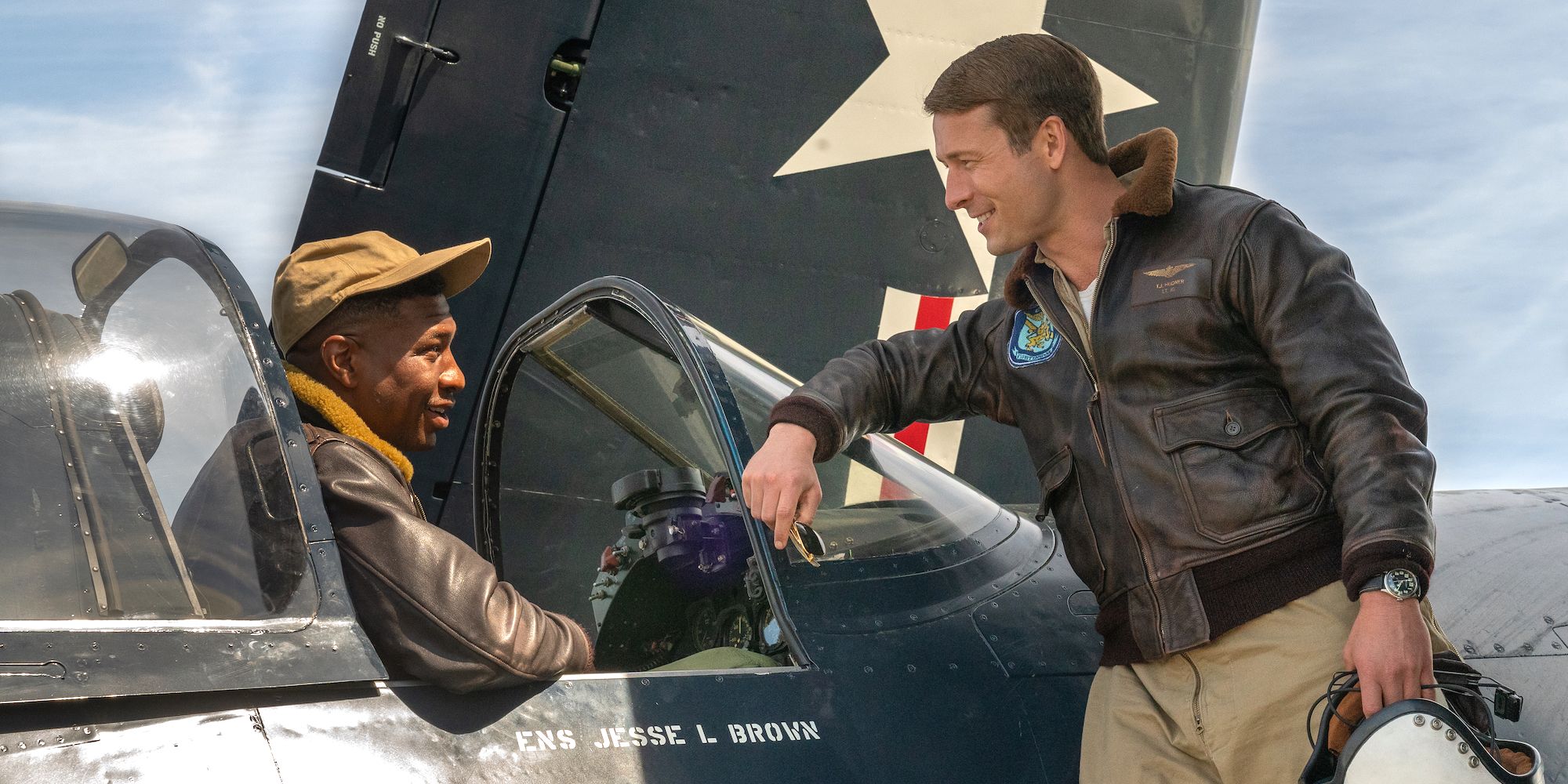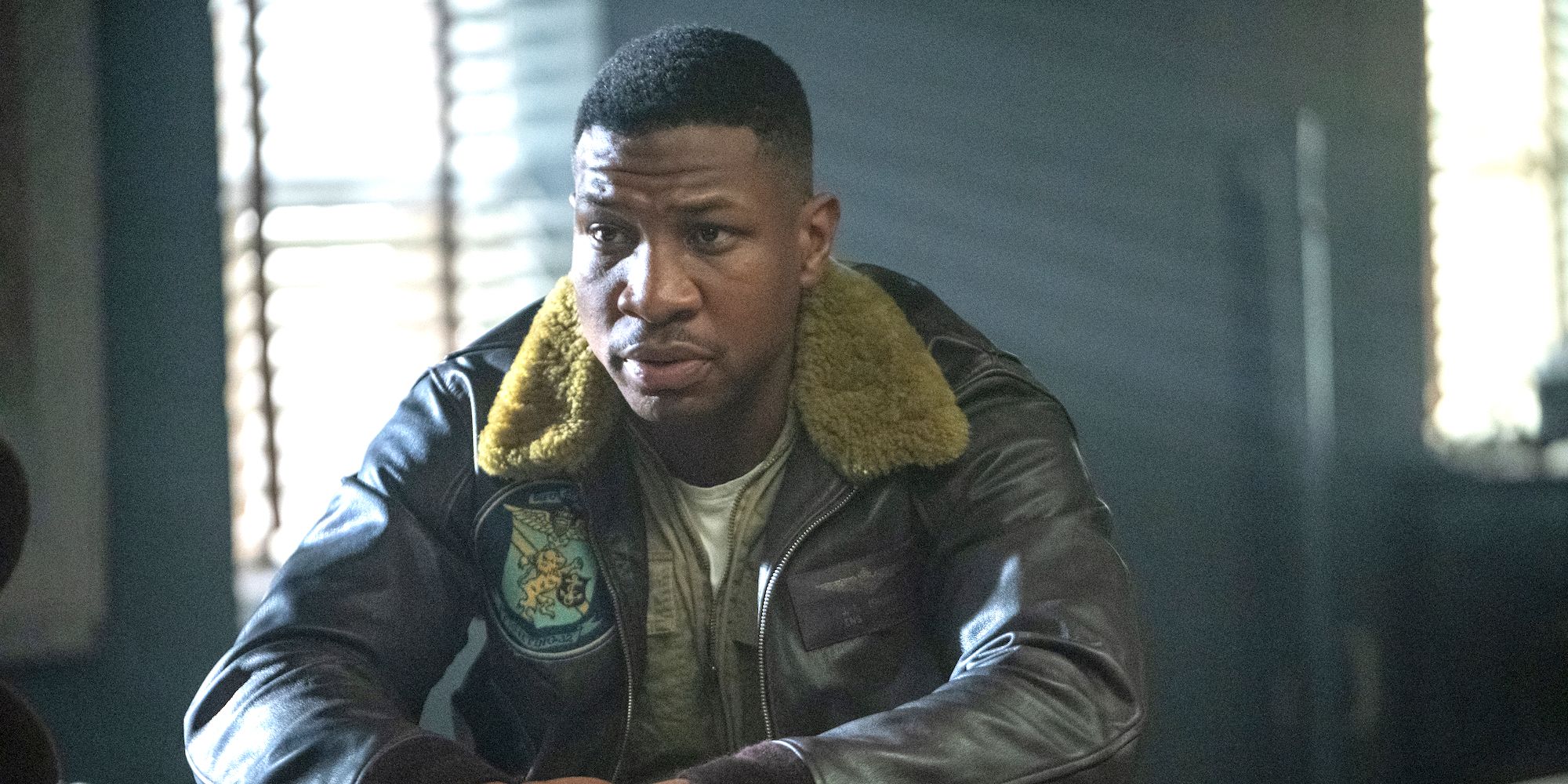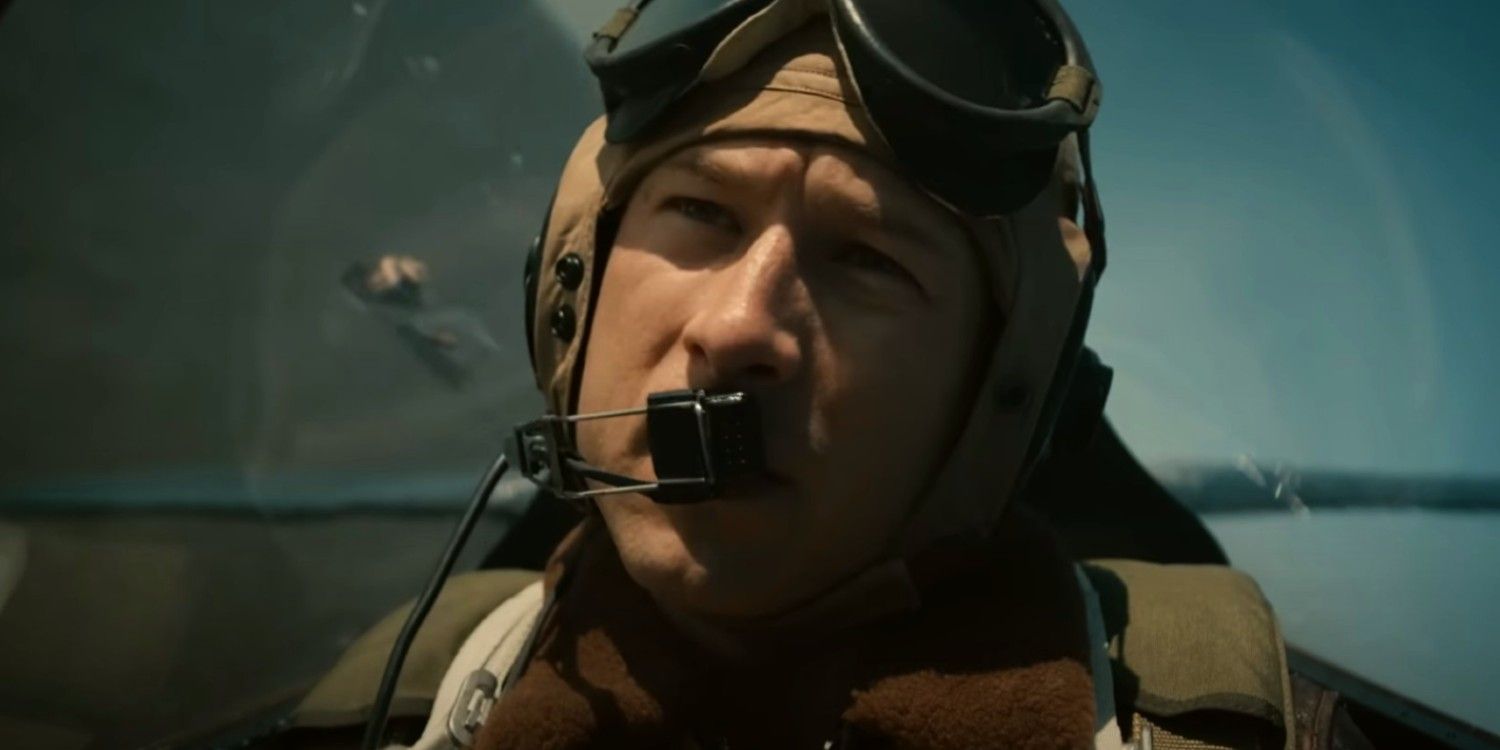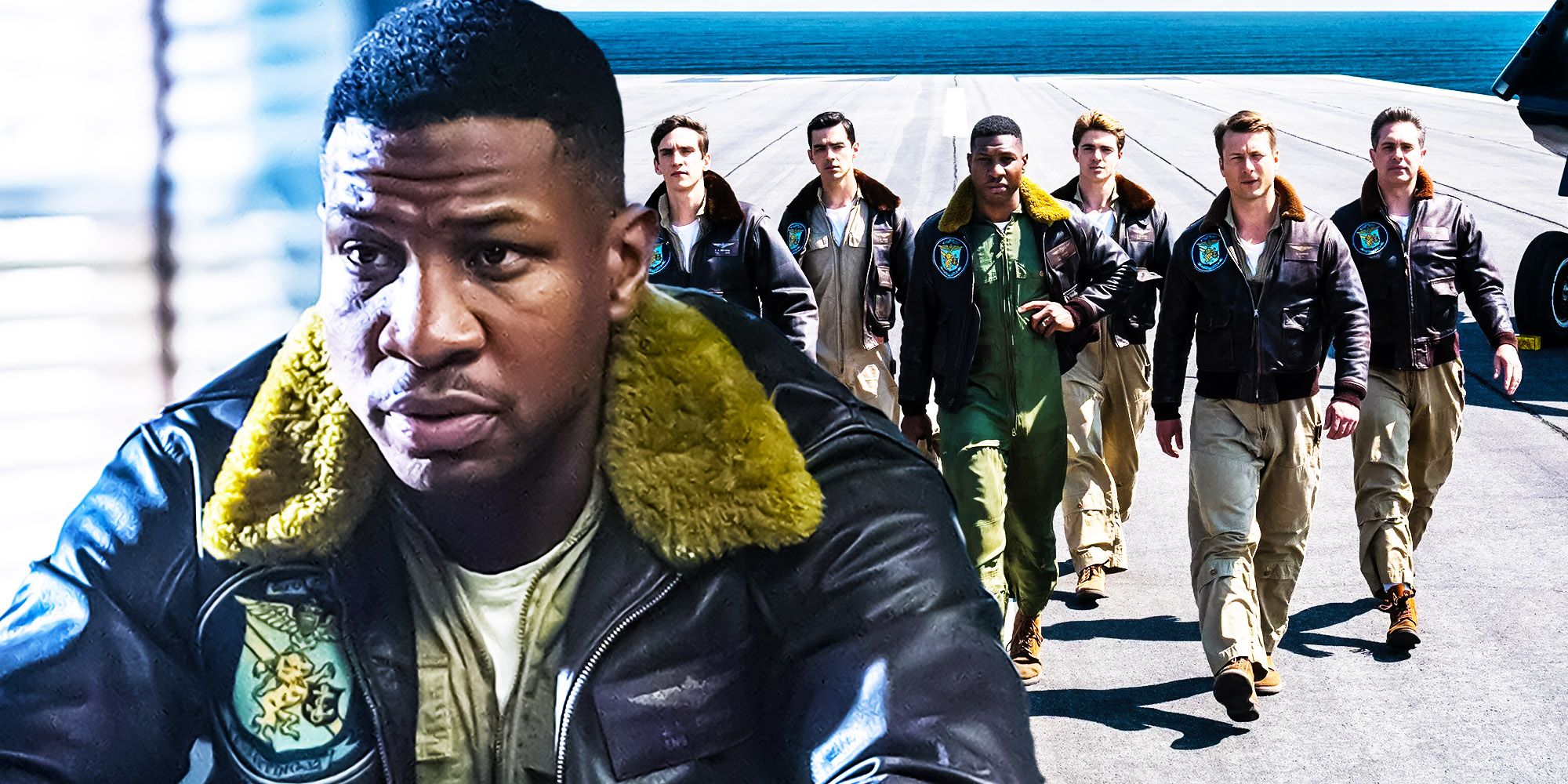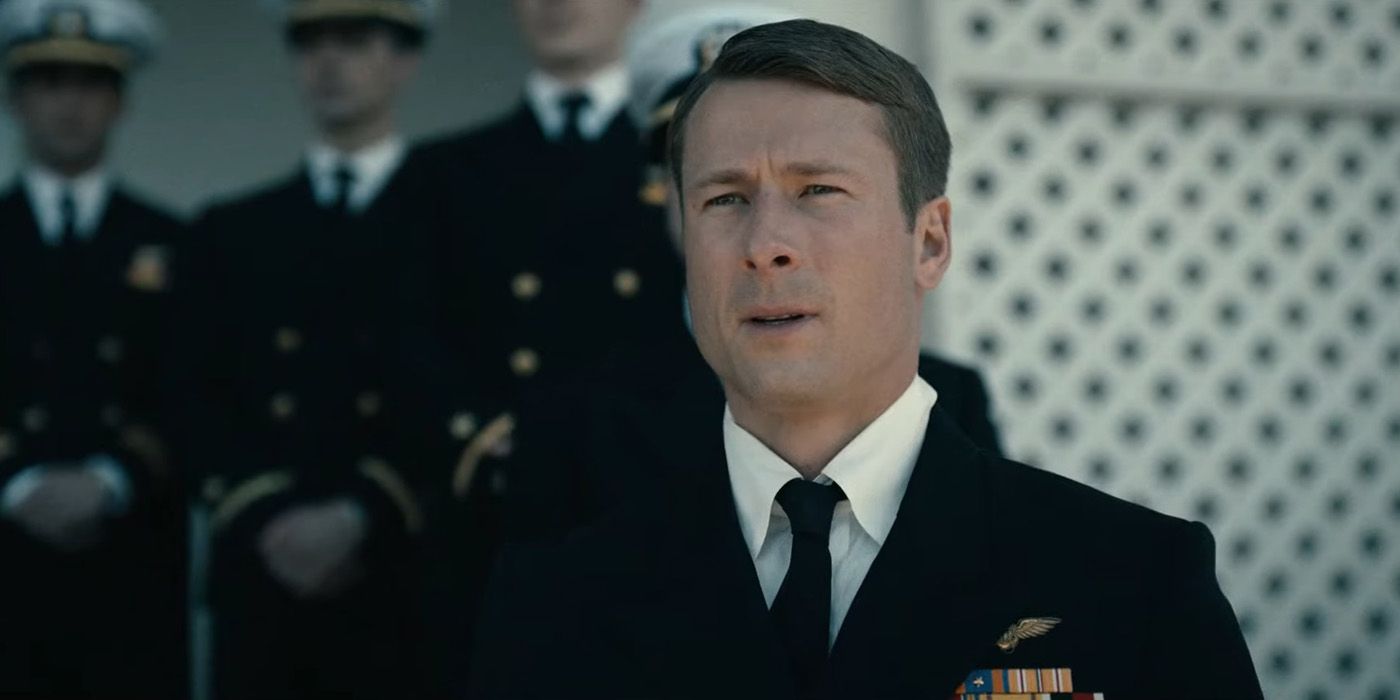The Devotion ending proves that feats of extraordinary bravery can occur in real-life conflicts. After the success of Top Gun: Maverick, Devotion seemed like a surefire box office success. Another military drama starring Glen Powell as a heroic naval pilot, Devotion seemed set to recreate the box-office impact or at least manage a commendable performance. Devotion was a box office flop, but the movie makes Top Gun: Maverick’s success even more impressive.
However, Devotion’s box-office underperformance doesn’t reflect its critical impact. Devotion’s true story of Jesse Brown, the first Black aviator in Navy history, and his relationship with his wingman Tom Hudner was met with largely positive reviews. However, the tragic Devotion ending – which sees Brown die in combat during the Korean War – might be to blame for the movie’s underperformance. Brown endures a lot of prejudice in Devotion’s runtime, but eventually, he and Hudner emerge as a pair of heroes and true friends.
What Happens In Devotion’s Ending
Brown Dies In A Plane Crash & Hudner Can’t Save Him
The Devotion ending is true to the story that inspired the movie. After Brown disobeys orders and completes a mission by blowing up a bridge during the Korean War, Hudner writes up this incident. Brown is enraged by this, noting that this infraction will be worse for him because of racial prejudice. Hudner is shocked to learn this and does what he can to make amends, but Brown insists that the best thing Hudner can do to help is get back to work as his wingman.
This proves true in the devastating Devotion ending when Hudner intentionally crashes his plane to save Brown. Tragically, Hudner cannot help Brown escape from his aircraft and eventually has to leave the scene. Later, he is rewarded for his bravery but admits to Brown’s widow, Daisy, that he still wishes he had done more to save his colleague and friend.
Hudner tells Daisy that her husband’s last words were about how much he loved her.
Daisy notes that his responsibility was not to save Jesse Brown but rather to stay with him during his last moments, and Hudner tells Daisy that her husband’s last words were about how much he loved her. Devotion’s ending avoids Hudner’s post-war life, since the movie is pointedly focused on Brown, Hudner, and their work together as two trailblazers for racial equality.
Why Hudner Reported Brown’s Disobedience
Hudner Was A By-The-Book Pilot Who Didn’t See The Racial Prejudice
Since Hudner and Brown were friends and close coworkers, it can be hard to see why the latter would have reported the former. The reasons for this are twofold. One is that, as a by-the-book officer, Hudner saw no reason to falsify his report and wanted to ensure accuracy. The other, more important reason is that Hudner wasn’t aware of how much worse Brown’s infraction would be treated than those of a white aviator.
Where Powell’s Top Gun: Maverick character was a headstrong renegade, Hudner was a rule-abiding aviator who didn’t realize that racial prejudice was a big part of Brown’s life and career.
Why Did Brown Talk To The Camera In Devotion?
This Brings The Viewers Into Brown’s Mindset
While Hudner was clueless when it came to racism, Jesse Brown didn’t have the same luxury. In a series of striking scenes interspersed throughout Devotion, Brown repeats racial slurs, degrading comments, and hateful rhetoric thrown his way throughout his career. These fourth-wall-breaking scenes allow Devotion to depict how much racism Brown endured from his Naval superiors and allow viewers to experience the raw impact of this hate.
It is a bracing, unusual directorial choice in an otherwise straightforward biopic and one that effectively forces viewers into the perspective of Brown, meaning that, by the time the Devotion ending comes around, no audience member could leave the theater with Hudner’s naïveté.
Why Hudner Disobeyed Orders To Save Brown
He Values Brown’s Life Equally To His Own
Perhaps the most potent moment in Devotion’s story comes in Hudner’s decision to disobey orders and what it means for his arc. After Hudner almost derails Brown’s career by reporting on his decision to bomb a bridge in an earlier mission, Hudner himself then later disobeys orders by intentionally crashing his plane to help Brown out of his crashed aircraft. While the rescue mission proved unsuccessful, it is still vital to note that Hudner still both disobeyed orders and risked his life for Brown.
While Hudner was naive about race relations when he was shocked to learn that Brown would be reprimanded more than a white officer for the same actions, his decision to down his aircraft and risk his life for his wingman proved how much he cared for Brown. It is Jonathan Majors’ Jesse Brown that the movie revolves around, and, as such, the most pivotal moment for Hudner in the Devotion ending is when he proves that he doesn’t value his life above Brown’s survival.
What Devotion’s Ending Really Means
Devotion Shows Racism During A Racist War
In an insтιтution as regimented as the military, it can be difficult to call out or even identify racism. Historians argue the Korean War itself was a racist endeavor, thus muddling Devotion’s inspirational message. However, among individuals who exist in a deeply racist system, instances of transcendental fraternity can shine despite a background of prejudice and inequality. Devotion doesn’t ignore the real-life war, but ignoring the imperial aspects of the Korean War complicates its message about Brown and Hudner’s bond.
Hudner even got over his devotion to the rules to try and save his friend.
Nonetheless, the friendship and camaraderie shared by Jesse Brown and Tom Hudner are the focus of Devotion’s story. Regardless of the racism underpinning the war they fought, Brown and Hudner forged a bond that managed to survive the racism that Brown faced in the Navy. The pair were colleagues until Brown’s tragic death, and Hudner even got over his devotion to the rules to try and save his friend. While the Devotion ending saw Jesse Brown die, the memory of his bond with Hudner lives on today.
How The Devotion Ending Was Received
Critics & Audience Praised The Film
Since the Devotion ending is based on a true story, there is no way to change it for the better without disrespecting real-life events. It seems that most people wouldn’t have wanted it any other way since the critics named it Certified Fresh at 81%, and the audience labeled it Certified H๏τ at 92% on Rotten Tomatoes. However, not everyone was sold, with one audience reviewer writing, “The only problem I had was the fact that the foreshadowing of deaths was very easy to see, so they were less impactful.“
Variety film critic Peter Debruge explained why the ending worked so well:
“Audiences have seen much of the unfair treatment facing Brown before, whether in life or other movies, but there are still a few lessons for Hudner to learn about being an effective ally. The movie’s big finale echoes “Top Gun: Maverick” in some ways, as Hudner puts his life on the line to save his friend. Brown has already proven his devotion; through Hudner’s actions, the country is able to show this pioneering Black aviator that same respect.”
As for fans, there was a Reddit thread where people credited the Devotion ending with making them emotional. Nistleroy86 wrote, “I think that’s what hit me – the realness. They didn’t take the stereotypical “hero’s” way out and that hit me emotionally. It was well done.” Another Redditor wrote that the entire theater was shaken up at the end, writing, “when the credits started playing and continued playing, nobody even stood up—everyone was just silent. It was so intense.”
